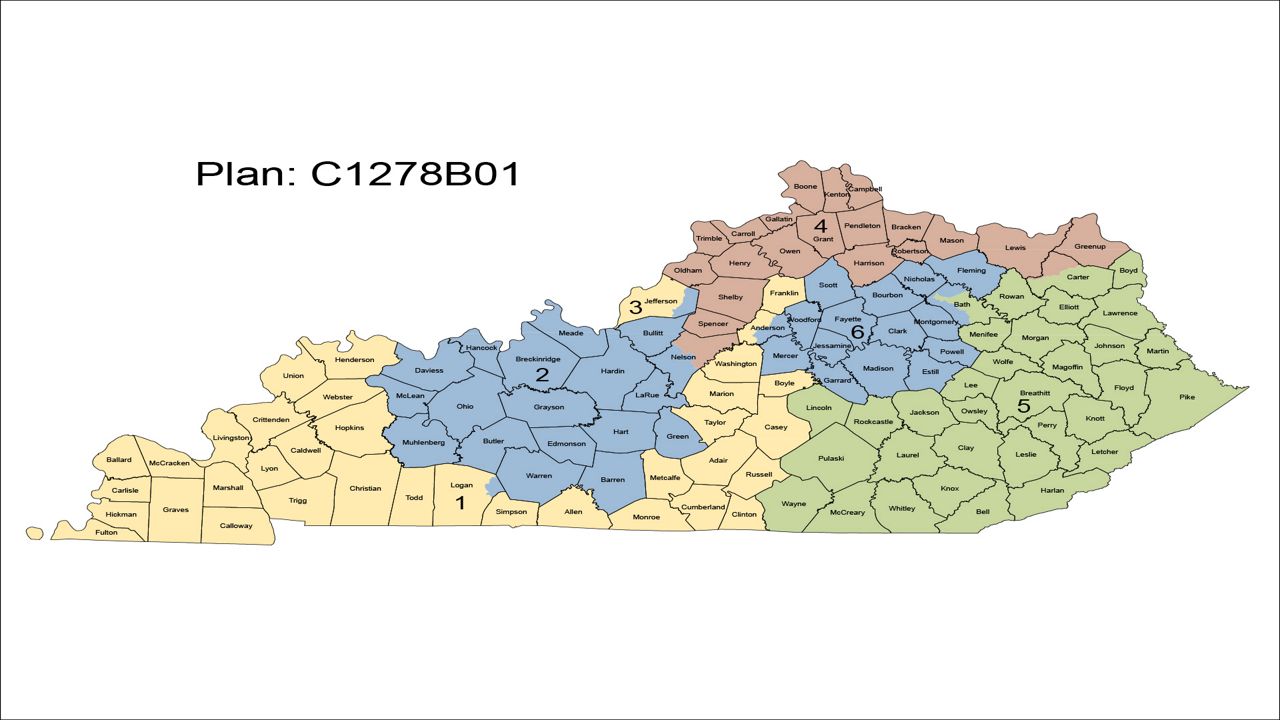FRANKFORT, Ky. — Kentucky's Democratic governor vetoed Republican-crafted maps for congressional and state House districts Wednesday, saying the boundaries reflect “unconstitutional political gerrymandering.”
Both measures overwhelmingly cleared the GOP-dominated legislature earlier this month, signaling Republican lawmakers would have the political muscle to override Gov. Andy Beshear's vetoes.
In rejecting the new boundaries for Kentucky's six congressional districts, Beshear said: “One look at the map reveals what those who drafted it in secret were trying to hide: the redistricting plan is a political gerrymander.”
Beshear's veto message noted the changes in the 1st Congressional District. The GOP plan extended the oddly shaped district to add Franklin County, which includes Democratic-leaning Frankfort in central Kentucky. The district, a Republican stronghold, is mostly based in western Kentucky.
“Under this map, someone driving from Lexington to Louisville would cross five of the state's congressional districts, but it would take over four hours to get from one side of the First District to the other,” the governor said.

It takes about an hour to drive from Lexington to Louisville — the state's two largest cities.
In vetoing the redistricting plan for the 100-seat Kentucky House, Beshear also called it an “unconstitutional political gerrymander.” He said it “excessively splits” some counties and “carves up” other counties for “partisan reasons,” contrary to Kentucky's constitution.
Beshear said the plan also “appears to dilute the voices of certain minority communities.”
Responding to Beshear's action, House Speaker David Osborne said the governor was “wrong on the facts, wrong on the law.”
“This proposal meets all legal considerations,” Osborne said in a statement. “It splits no precincts, divides the fewest number of counties possible and preserves communities of interest.”
The speaker said the redistricting plan for the state House significantly increases minority representation.
“By issuing this veto, the governor is showing that at best he is poorly informed, and at worst it is blatant political posturing,” Osborne said.
GOP lawmakers will use their "legislative authority to override this veto,” the speaker said.
The governor had not yet taken action on the GOP plan to redraw Kentucky Senate districts.
In reshaping the congressional districts, GOP lawmakers kept the only Democratic-held district basically intact. Democrats had fretted that the Louisville-area 3rd District might be carved up.
Instead, under the GOP-passed plan the 3rd District would continue to cover most of Jefferson County, which includes Louisville — the state’s biggest Democratic stronghold. A section of eastern Jefferson County would be joined to the GOP-dominated 2nd District.
One likely beneficiary of the redrawn boundaries would be 6th District GOP Rep. Andy Barr, the only Kentucky congressman to face a tough reelection campaign in recent years. Shifting Franklin County out of the 6th would likely change the political calculus in what has long been a swing district.
The new map would extend the 1st Congressional District’s fishhook deeper into central Kentucky to include Franklin and Washington counties and part of Anderson County. The sprawling 1st District would stretch from Fulton County, tucked into the southwestern corner of Kentucky, to Frankfort, about 300 miles (more than 480 kilometers) away.
GOP lawmakers pushed through redistricting bills in the first week of this year's legislative session. The changing boundaries stem from population changes reflected in the latest Census data. Eastern and western Kentucky generally lost population, while central and northern sections gained residents.
Even if GOP lawmakers override the vetoes, another looming question is whether the new boundaries will draw court challenges. The bills’ defenders have expressed confidence that the once-a-decade map-making work would hold up against any lawsuit.



